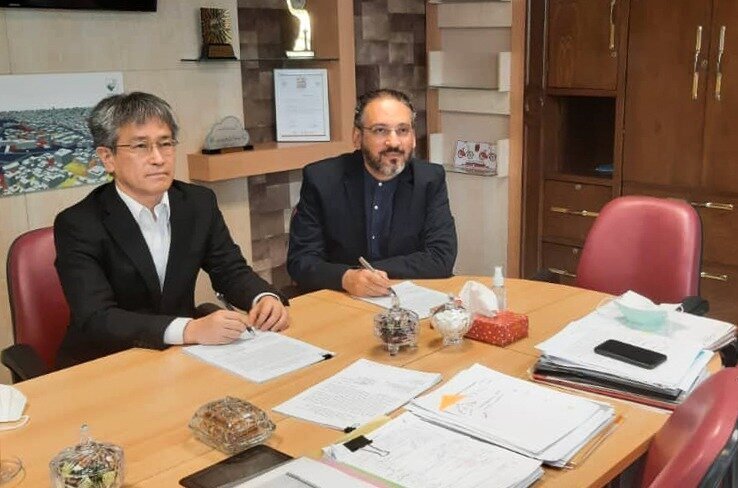JICA provides Tehran Municipality with air quality control equipment

TEHRAN – The Japan International Cooperation Agency (JICA) has provided 6 air pollution analysis equipment to Iran within the framework of capacity development on air pollution control in the Tehran Municipality Project.
The Seventh Joint Coordinating Committee (JCC) of the JICA Project for Capacity Development on Air Pollution Control in Tehran Municipality Project was formed, ISNA reported on Sunday.
This project, which started in 2017, is one of the largest and most comprehensive projects in the field of air pollution by the Japanese in collaboration with Iranian experts covers various aspects of air pollution in Tehran, and finally by providing solutions to reduce air pollution for the metropolis of Tehran will end this year.
Air pollution equipment will be provided to the Tehran Municipality’s Air Quality Control Company. By the end of this year, air pollution equipment will be provided to the Air Quality Control Company in the form of a technical cooperation project.
Cooperation between the two sides will continue in the coming years with the emphasis on finding the most appropriate solutions to reduce air pollution in this metropolis.
The document was signed at a time when the recent air pollution crisis in Tehran due to dust storms doubled the need to develop air pollution monitoring stations in Tehran.
As per the agreement, JICA will provide air pollution analysis equipment needed to measure emission gases, carry out chemical analysis on particulate matter and implement other related activities in the capital, so that the sources of air pollution substances, emission volumes, and the generation mechanisms can be evaluated and analyzed with higher precision, contributing to a mitigation of the air pollution.
Air pollution
Air pollution is one of the life-threatening environmental factors. The effects of air pollution on human health have long been considered, since the early 1990s, air pollution in cities, especially in the metropolises of developing countries, has been recognized as one of the most important environmental concerns in the world.
According to experts, airborne particles can cause short-term and long-term effects on the health of residents of polluted areas. Air pollution has diverse impacts on different people, which appears more on vulnerable groups such as children and the elderly.
Three million people die of air pollution each year, and in some countries, the number of people who die from the same factor is higher than the number of victims of traffic accidents. Air pollution is one of the most important preconditions for sustainable development due to its implications for the living conditions of future generations, which may be affected by many potential factors.
Air pollution kills an estimated seven million people worldwide every year. WHO data shows that almost all of the global population (99%) breathe air that exceeds WHO guideline limits containing high levels of pollutants, with low- and middle-income countries suffering from the highest exposures.
Air pollution is responsible for around 40,000 premature deaths in Iran annually, Mohammad-Sadeq Hassanvand, head of the air pollution research center at Tehran University of Medical Sciences, said in July 2020.
From smog hanging over cities to smoke inside the home, air pollution poses a major threat to health and climate. The combined effects of ambient (outdoor) and household air pollution cause millions of premature deaths every year, largely as a result of increased mortality from stroke, heart disease, chronic obstructive pulmonary disease, lung cancer, and acute respiratory infections.
FB/MG
Leave a Comment